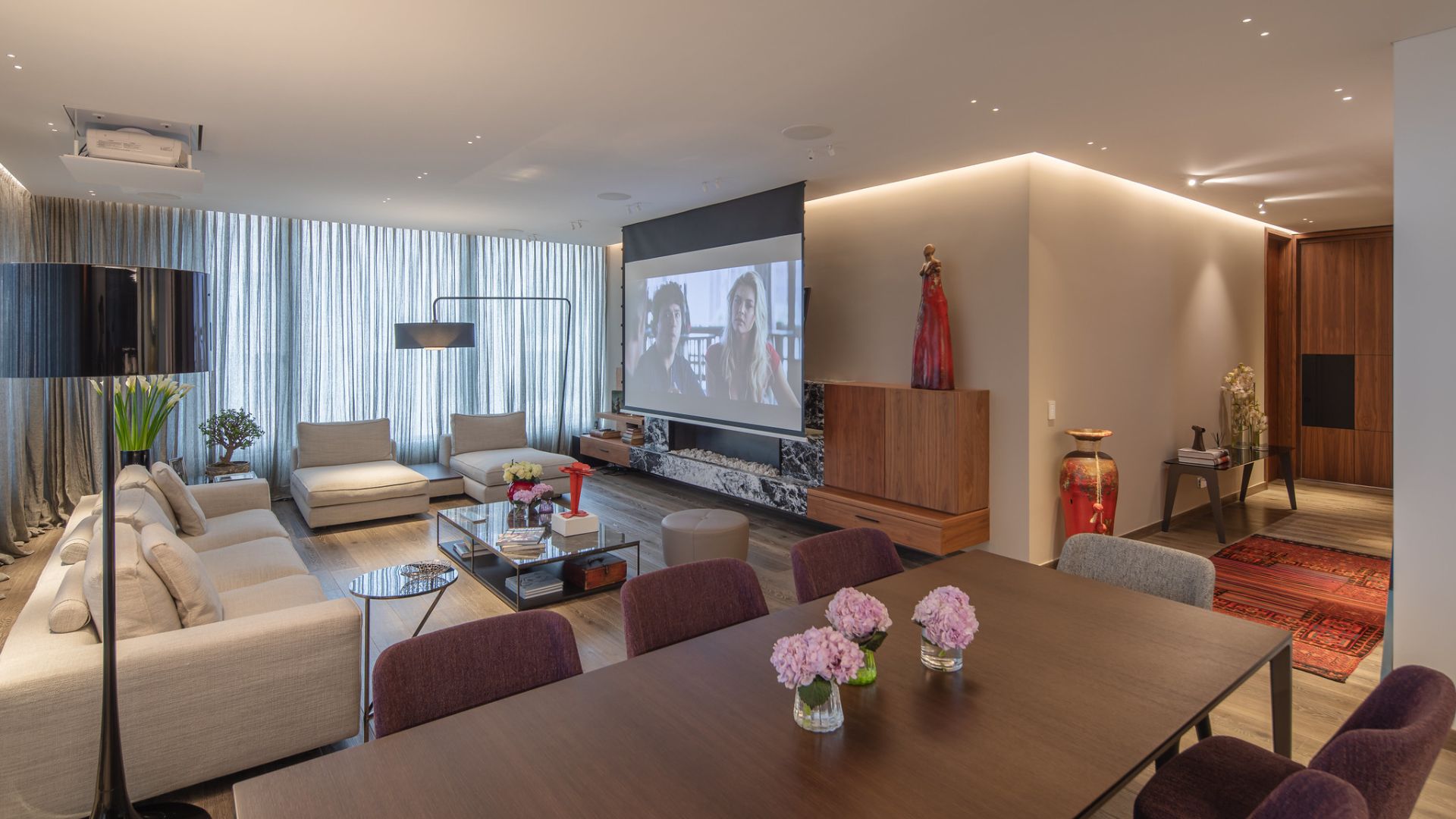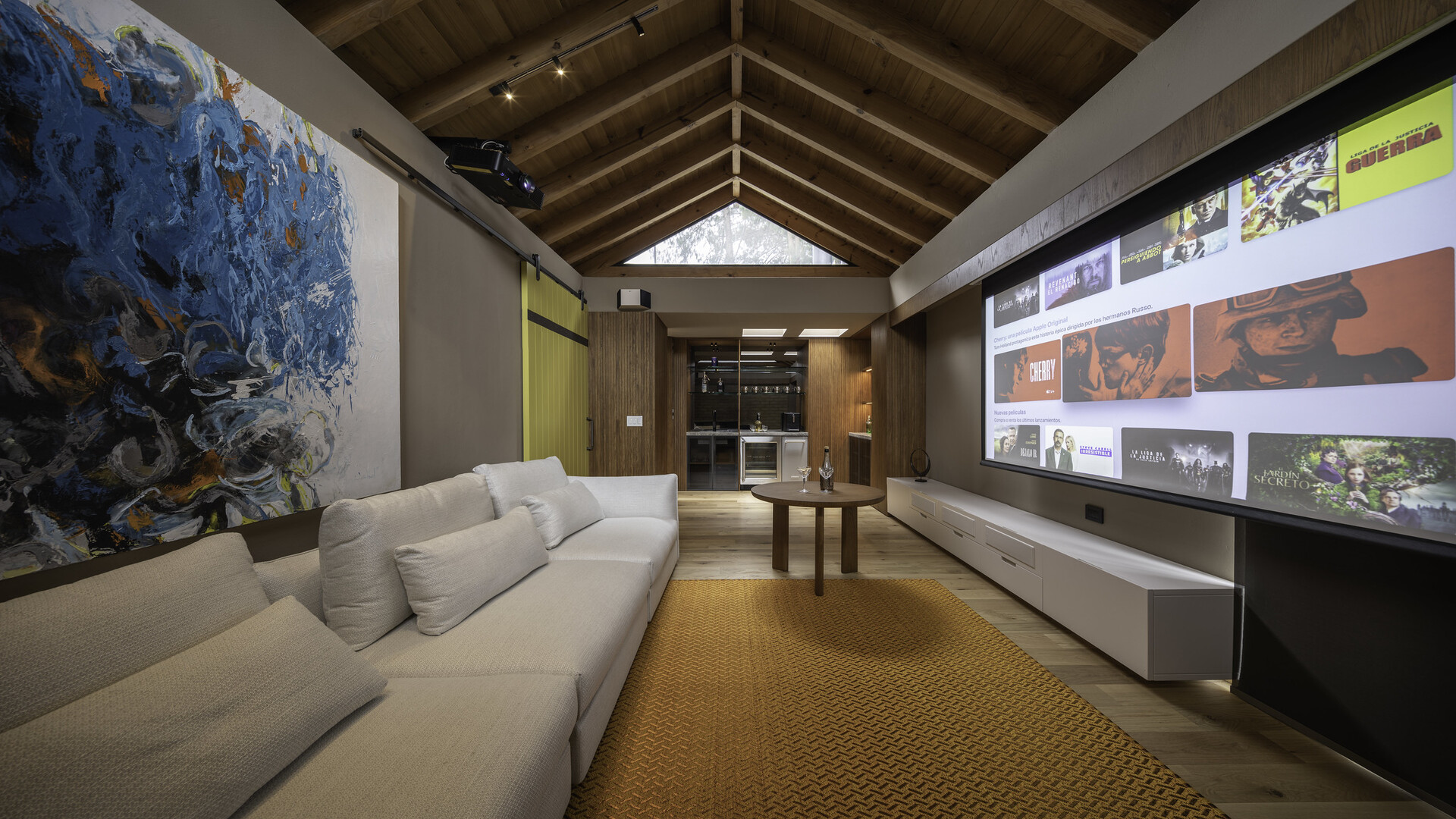Table of contents
- Unraveling the Mysteries of AV Engineering
- Defining AV Engineering: More Than Just Sound and Video
- The Diverse Sub-Disciplines of AV Engineering
- Skills and Knowledge: What Makes a Great AV Engineer
- Break-Into the AV Engineering: Essential Qualification & Training
- Opportunities: Exploring Career Paths in AV Engineering
- Spotlight: Noteworthy Innovations Shaping The Future of AV Engineering
- Ready to Dive In? Contact Schallertech to Start Your AV Engineering Journey Today
Unraveling the Mysteries of AV Engineering
AV Engineering, short for Audio Visual Engineering, is the fascinating field that lies at the intersection of sound, video, and technology. Its core purpose revolves around designing and optimizing systems that produce, capture, and transmit audio and visual data. From the captivating visuals of a blockbuster movie to the crystalline clarity of a concert’s sound, AV engineering plays a pivotal role in crafting these experiences.
The discipline can be thought of as an intricate dance between science and art. On one hand, it delves deep into the nuances of electronics, acoustics, and optics, aiming to understand the nitty-gritty of how sound and images are produced, processed, and presented. On the other hand, it requires a touch of artistry, ensuring that the end product is not only technically sound but also capable of evoking emotions and delivering unparalleled experiences to the audience.
Today, AV engineering is omnipresent. Think of the conference rooms in corporate offices with state-of-the-art video conferencing facilities or the immersive sound in home theaters; these are just the tips of the iceberg. The field has evolved exponentially with the advent of digital technology, leading to innovations such as high-definition displays, 3D audio setups, and augmented reality systems. Moreover, as we step into an era of smart homes, the role of AV engineering in home automation becomes more prominent, from voice-activated systems to synchronized lighting designs that accompany our media consumption.
The world of AV engineering is vast, with layers of complexity and innovation. It’s not just about setting up a microphone or calibrating a projector. It’s about creating environments where technology enhances human experiences, turning ordinary moments into extraordinary memories. And as we continue to integrate technology into every facet of our lives, the importance and intrigue of AV engineering are bound to grow manifold.
Defining AV Engineering: More Than Just Sound and Video
Audio-visual engineering (also known as A/V engineering or AV systems engineering) is a multidisciplinary field that encompasses the design, installation, and maintenance of audio and video systems. AV engineers work in a variety of industries, including live events, corporate AV, education, and healthcare.
AV engineers must have a strong understanding of both audio and video technologies, as well as the ability to work with a variety of equipment and software. They must also be able to work independently and as part of a team, and be able to meet deadlines and handle stress.
AV engineering is a growing field, with a projected job growth rate of 12% over the next decade. There are a variety of career opportunities available for AV engineers, including positions in live events, corporate AV, education, healthcare, and government.
If you are interested in a career in AV engineering, there are a number of educational programs available that can prepare you for the field. These programs typically include courses in audio and video technology, as well as courses in business, mathematics, and computer science.
The Diverse Sub-Disciplines of AV Engineering

AV engineering is a broad field that encompasses a wide range of sub-disciplines. These sub-disciplines can be grouped into three main categories:
Control engineering: This sub-discipline focuses on the design, installation, and maintenance of AV systems. Systems engineers work with a variety of technologies, including audio, video, lighting, and control systems.
Signal processing: This sub-discipline focuses on the manipulation of audio and video signals. Signal processing engineers work with a variety of technologies, including digital signal processing, analog signal processing, and compression.
Acoustics engineering: This sub-discipline focuses on the behavior of sound waves and controlling noise and vibration by analyzing, simulating and modifying how sound propagates to design spaces like concert halls and reduce unwanted noise in products.
AV engineers work in a variety of industries, including live events, corporate AV, education, and healthcare. They also work on a variety of projects, including conferences, trade shows, concerts, and corporate presentations.
The diverse sub-disciplines of AV engineering offer a variety of career opportunities for those who are interested in the field. AV engineers can find work in a variety of industries and on a variety of projects. They can also choose to specialize in a particular sub-discipline or to work in a more general role.
Skills and Knowledge: What Makes a Great AV Engineer
In addition to the technical skills required for AV engineering, great AV engineers also possess a number of soft skills that make them successful in their roles. These skills include:
- Communication skills
- Problem-solving skills
- Teamwork skills
- Leadership skills
- Creativity
- Flexibility
- Attention to detail
- Organizational skills
Great AV engineers are able to effectively communicate with clients, colleagues, and vendors. They are able to identify and solve problems quickly and efficiently. They are able to work effectively in teams and lead others. They are creative and innovative in their approach to problem-solving. They are flexible and adaptable to change. They pay attention to detail and are organized.
These skills are essential for success in the AV engineering field. Great AV engineers are able to use their skills to create innovative solutions that meet the needs of their clients.
Break-Into the AV Engineering: Essential Qualification & Training
There are a number of different ways to break into the AV engineering field, but all of them require a strong foundation in mathematics, science, and technology. In addition, AV engineers must have excellent communication and interpersonal skills, as they will often be working with clients and other professionals to design and implement AV systems.
Some of the specific qualifications that AV engineers need include:
- A bachelor’s degree in engineering, computer science, or a related field
- Strong knowledge of audio, video, and lighting systems
- Experience with CAD software and other design tools
- Excellent communication and interpersonal skills
- The ability to work independently and as part of a team
AV engineers can also earn additional certifications to demonstrate their expertise in specific areas of the field. Some of the most popular certifications include:
- Certified Technology Specialist (CTS) by AVIXA.
- Electronic Systems Certified Designer (ESC-D) by CEDIA.
These certifications can help AV engineers stand out from the competition and improve their chances of landing a job in the field.
In addition to formal education and training, AV engineers can also gain valuable experience by working as interns or apprentices. This hands-on experience can help them learn the ropes of the industry and develop the skills they need to be successful.
The AV engineering field is a growing and exciting field with a wide range of career opportunities. With the right qualifications and training, AV engineers can have a rewarding and successful career.
Opportunities: Exploring Career Paths in AV Engineering

Printed Acoustic Panel at one of our Showrooms
The field of AV engineering offers a wide variety of career paths, from live event production to corporate AV to education AV. With so many different industries and applications for AV technology, there’s sure to be a role that’s a good fit for your skills and interests.
Here are just a few of the many career paths available in AV engineering:
- Live event production: AV engineers work on live events such as concerts, conferences, and trade shows. They are responsible for setting up and operating the audio, video, and lighting systems for these events.
- Corporate AV: AV engineers work in corporate settings to design, install, and maintain AV systems for use in boardrooms, conference rooms, and training rooms.
- Education AV: AV engineers work in educational institutions to design, install, and maintain AV systems for use in classrooms, lecture halls, and auditoriums.
- Government AV: AV engineers work in government agencies to design, install, and maintain AV systems for use in courtrooms, meeting rooms, and training facilities.
- Healthcare AV: AV engineers work in healthcare facilities to design, install, and maintain AV systems for use in patient rooms, operating rooms, and educational settings.
- Retail AV: AV engineers work in retail stores to design, install, and maintain AV systems for use in product displays, point-of-sale displays, and in-store entertainment systems.
- Other AV applications: AV engineers also work in a variety of other industries, such as sports, transportation, and manufacturing.
No matter what your interests or skills, there’s likely an AV engineering career path that’s a good fit for you. If you’re interested in learning more about AV engineering careers, there are a number of resources available online and in libraries. You can also contact AV companies in your area to learn more about their job openings and career opportunities.
Spotlight: Noteworthy Innovations Shaping The Future of AV Engineering
The field of AV engineering is constantly evolving, with new technologies emerging all the time. Here are a few of the most noteworthy innovations that are shaping the future of AV engineering:
- Virtual reality (VR) and augmented reality (AR) are becoming increasingly popular, and AV engineers are playing a key role in developing the infrastructure needed to support these technologies.
- 5G is another emerging technology that is having a major impact on AV engineering. 5G networks offer much faster speeds and lower latency than previous generations of wireless technology, which is making it possible to deliver high-quality AV content over the air.
- Artificial intelligence (AI) is also being used in a variety of ways to improve AV systems. AI can be used to automate tasks, such as content management and scheduling, and it can also be used to provide real-time analytics and insights.
- The Internet of Things (IoT) is another trend that is having a major impact on AV engineering. IoT devices are becoming increasingly common, and they are providing AV engineers with new ways to collect data and control systems.
These are just a few of the many innovations that are shaping the future of AV engineering. As these technologies continue to develop, AV engineers will play a critical role in ensuring that AV systems are able to keep pace with the changing demands of the industry.
Stay Ahead: Continuing Education for Career Advancement in AV Engineering
The field of AV engineering is constantly evolving, so it’s important for AV engineers to stay ahead of the curve by continuing their education. There are a number of ways to do this, including attending conferences and workshops, taking online courses, and reading industry publications.
Conferences and workshops are a great way to learn about the latest trends in AV engineering, network with other professionals in the field, and get hands-on experience with new technologies. Some of the most popular AV engineering conferences include InfoComm, CEDIA Expo, and ISE.
Online courses are another great way to stay up-to-date on the latest AV engineering trends. There are a number of online learning platforms that offer courses in AV engineering, such as edX, Coursera, and Udacity.
Industry publications are a great way to stay informed about the latest news and developments in the AV engineering field. Some of the most popular AV engineering publications include AV Magazine, AVNetwork, and Sound & Vision.
By continuing their education, AV engineers can ensure that they have the skills and knowledge they need to stay ahead of the curve and continue to advance their careers.
Ready to Dive In? Contact Schallertech to Start Your AV Engineering Journey Today
Schallertech is a leading provider of AV engineering services, specializing in the design, integration, and support of AV systems for businesses of all sizes. With over 15 years of experience, we have a proven track record of success in delivering high-quality AV solutions that meet the needs of our clients.
Our team of experienced engineers is dedicated to providing our clients with the best possible service. We will work with you to understand your specific needs and goals, and then design and implement a solution that is tailored to your specific requirements.
We offer a wide range of AV engineering services, including:
- AV system design
- AV programming
- AV budgeting
If you are looking for a reliable and experienced AV engineering partner, contact Schallertech today. We will help you take your AV experience to the next level.
Contact us at [email protected] or via Whatsapp +57(318)5359232 to learn more about our AV engineering services and how we can help you achieve your goals.
Our Portfolio
Table of contents
- Unraveling the Mysteries of AV Engineering
- Defining AV Engineering: More Than Just Sound and Video
- The Diverse Sub-Disciplines of AV Engineering
- Skills and Knowledge: What Makes a Great AV Engineer
- Break-Into the AV Engineering: Essential Qualification & Training
- Opportunities: Exploring Career Paths in AV Engineering
- Spotlight: Noteworthy Innovations Shaping The Future of AV Engineering
- Ready to Dive In? Contact Schallertech to Start Your AV Engineering Journey Today











